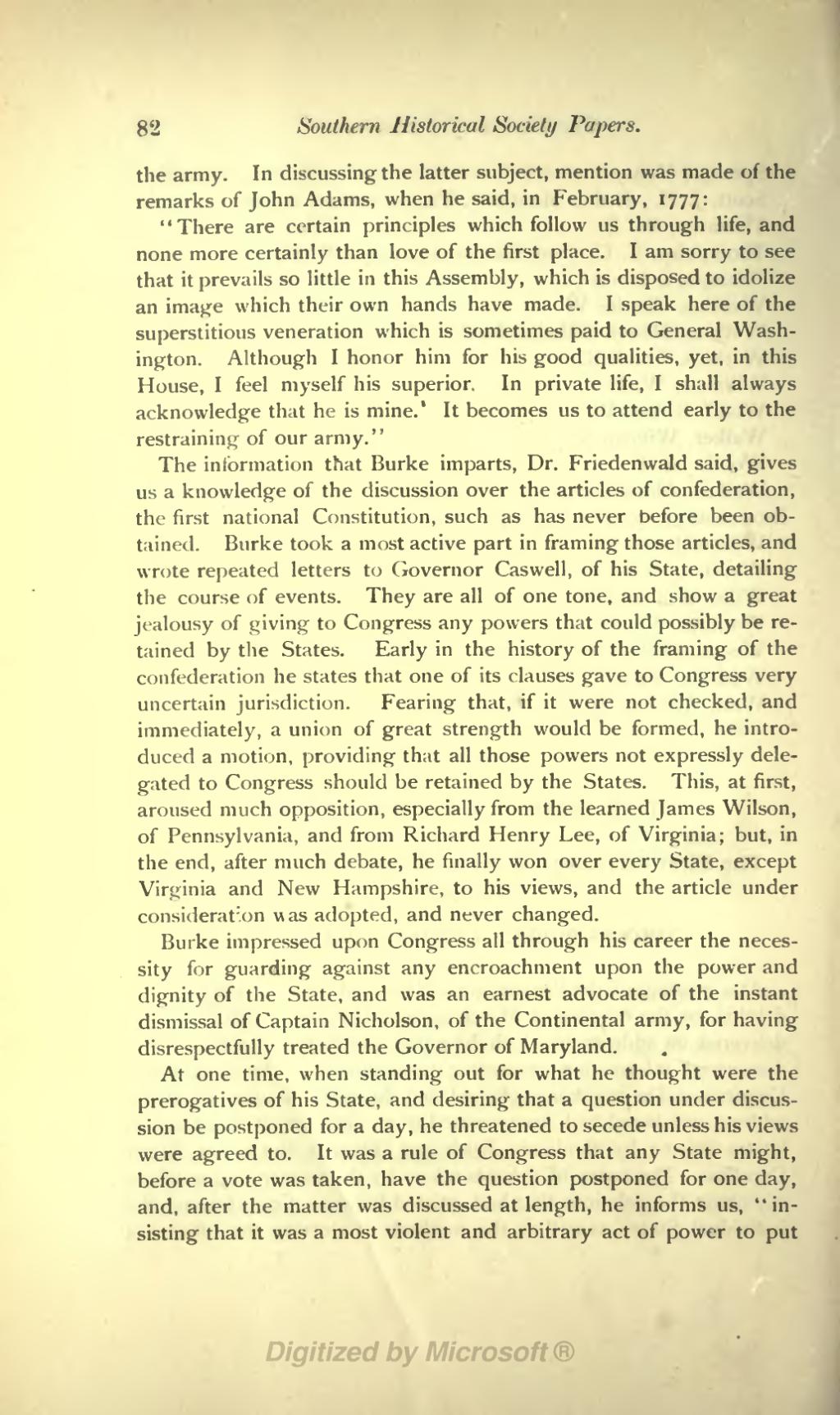82 Southern Historical Society Papers.
the army. In discussing the latter subject, mention was made of the remarks of John Adams, when he said, in February, 1777:
"There are certain principles which follow us through life, and none more certainly than love of the first place. I am sorry to see that it prevails so little in this Assembly, which is disposed to idolize an image which their own hands have made. I speak here of the superstitious veneration which is sometimes paid to General Wash- ington. Although I honor him for his good qualities, yet, in this House, I feel myself his superior. In private life, I shall always acknowledge that he is mine.' It becomes us to attend early to the restraining of our army."
The information that Burke imparts, Dr. Friedenwald said, gives us a knowledge of the discussion over the articles of confederation, the first national Constitution, such as has never before been ob- tained. Burke took a most active part in framing those articles, and wrote repeated letters to Governor Caswell, of his State, detailing the course of events. They are all of one tone, and show a great jealousy of giving to Congress any powers that could possibly be re- tained by the States. Early in the history of the framing of the confederation he states that one of its clauses gave to Congress very uncertain jurisdiction. Fearing that, if it were not checked, and immediately, a union of great strength would be formed, he intro- duced a motion, providing that all those powers not expressly dele- gated to Congress should be retained by the States. This, at first, aroused much opposition, especially from the learned James Wilson, of Pennsylvania, and from Richard Henry Lee, of Virginia; but, in the end, after much debate, he finally won over every State, except Virginia and New Hampshire, to his views, and the article under consideration \*as adopted, and never changed.
Burke impressed upon Congress all through his career the neces- sity for guarding against any encroachment upon the power and dignity of the State, and was an earnest advocate of the instant dismissal of Captain Nicholson, of the Continental army, for having disrespectfully treated the Governor of Maryland.
At one time, when standing out for what he thought were the prerogatives of his State, and desiring that a question under discus- sion be postponed for a day, he threatened to secede unless his views were agreed to. It was a rule of Congress that any State might, before a vote was taken, have the question postponed for one day, and, after the matter was discussed at length, he informs us, "in- sisting that it was a most violent and arbitrary act of power to put
